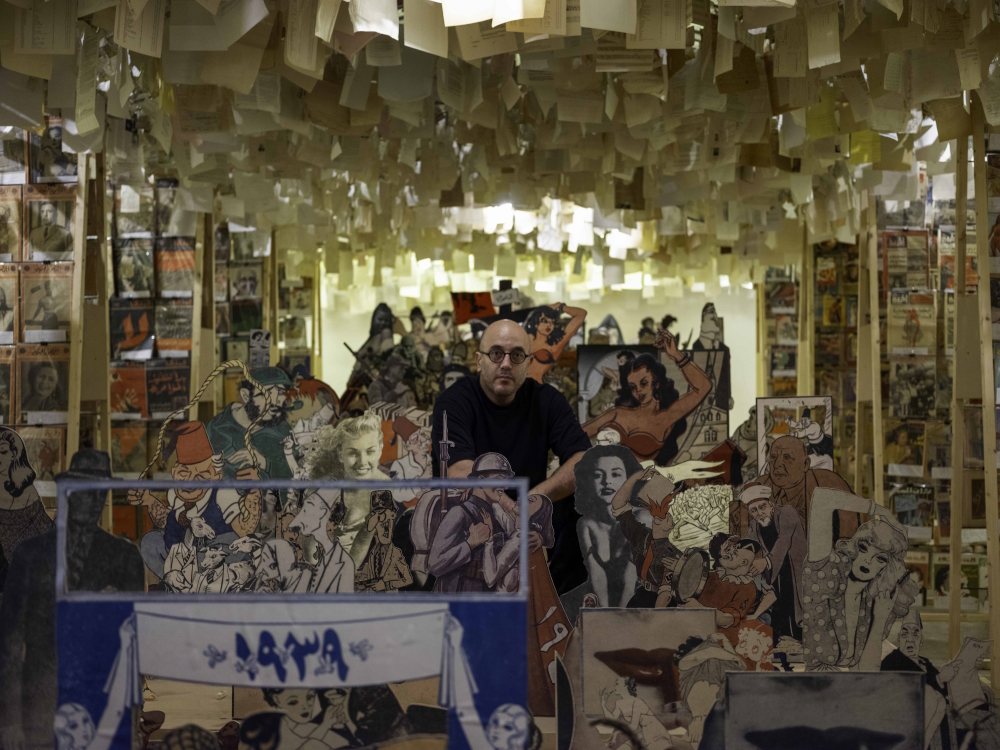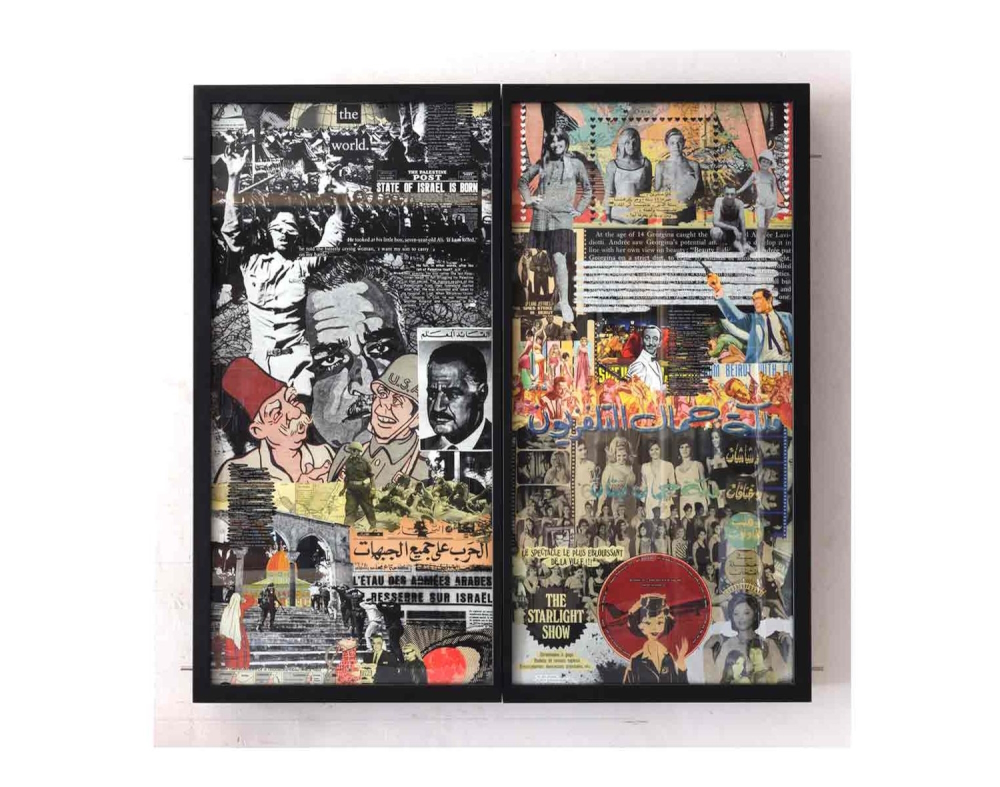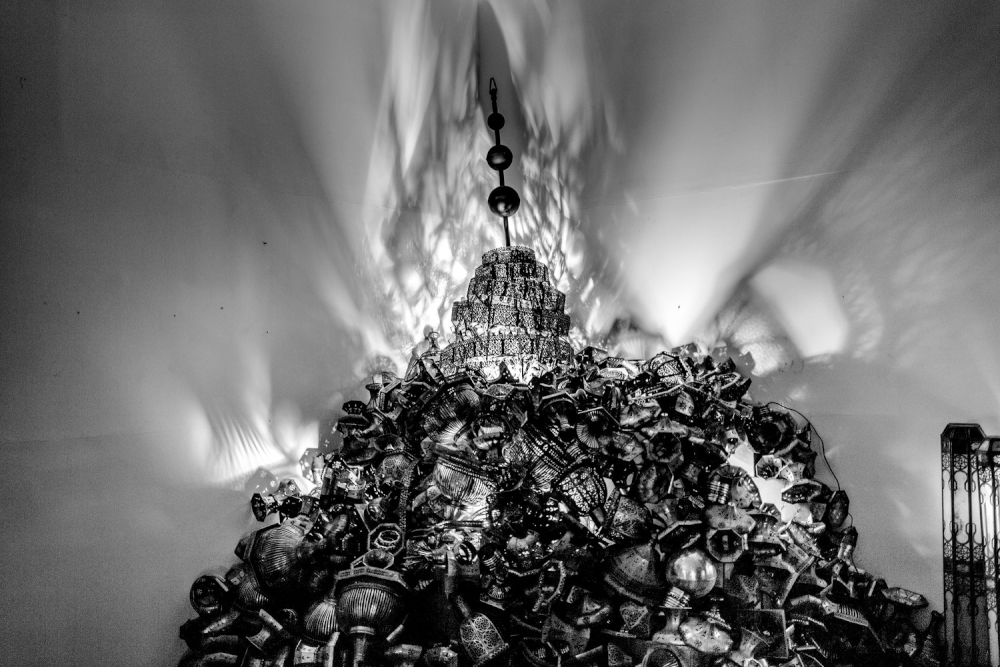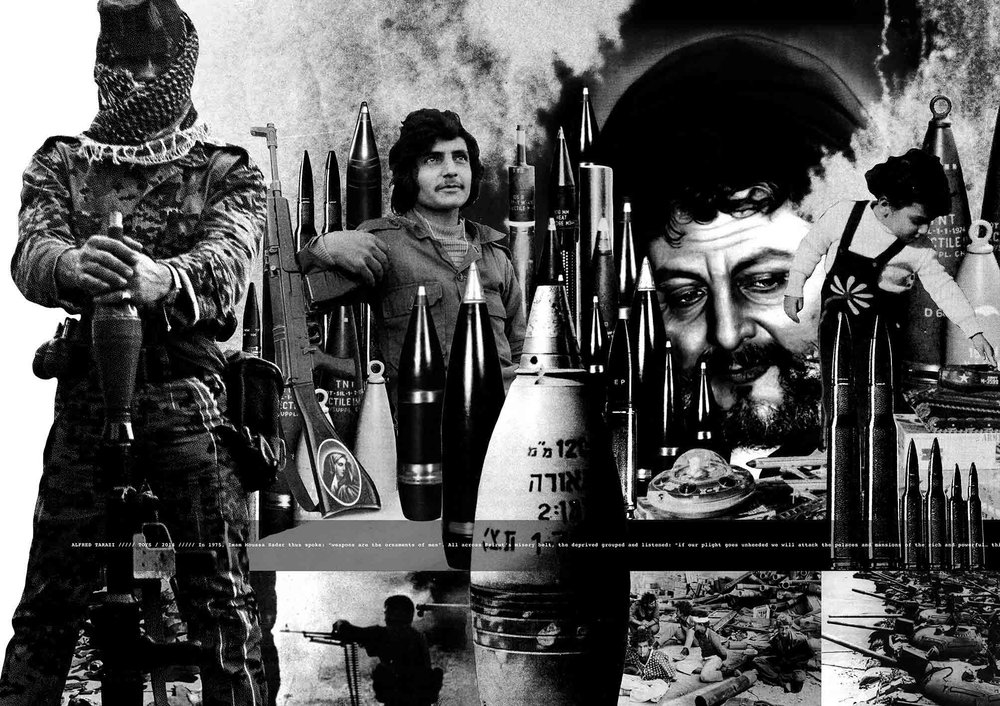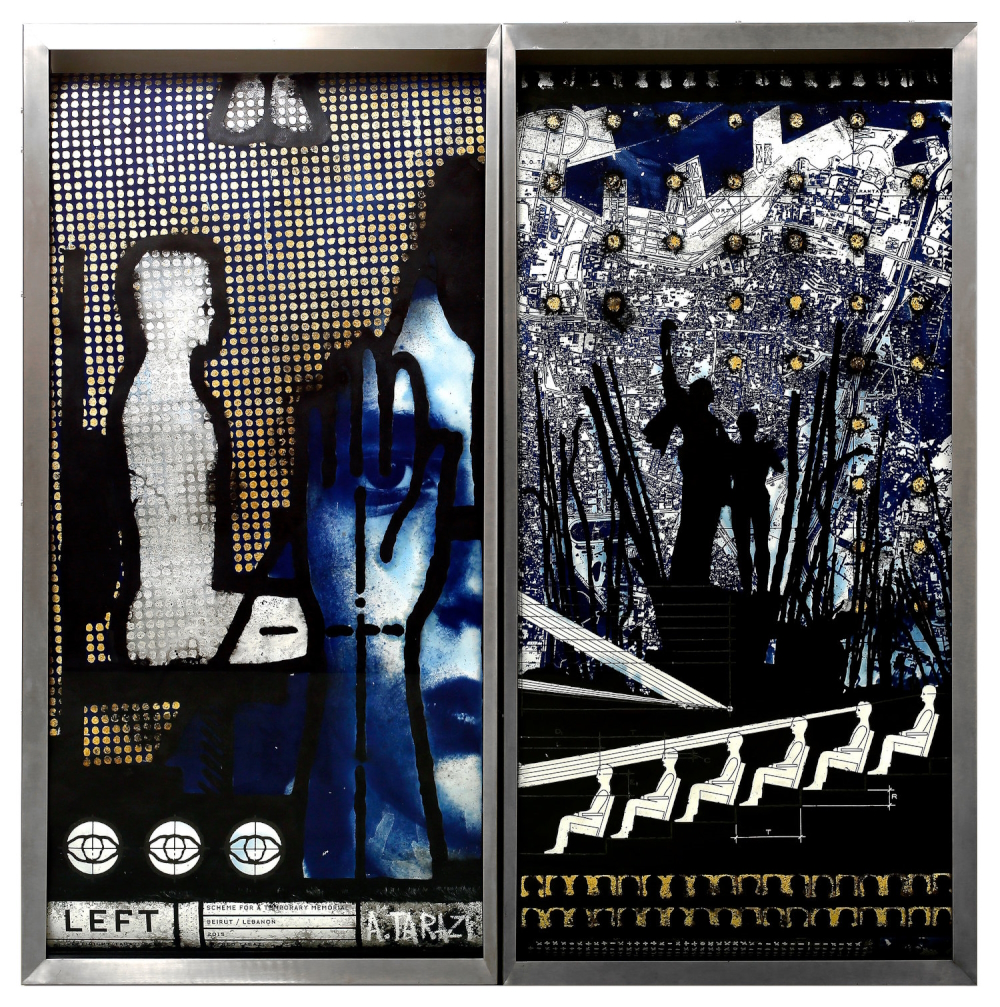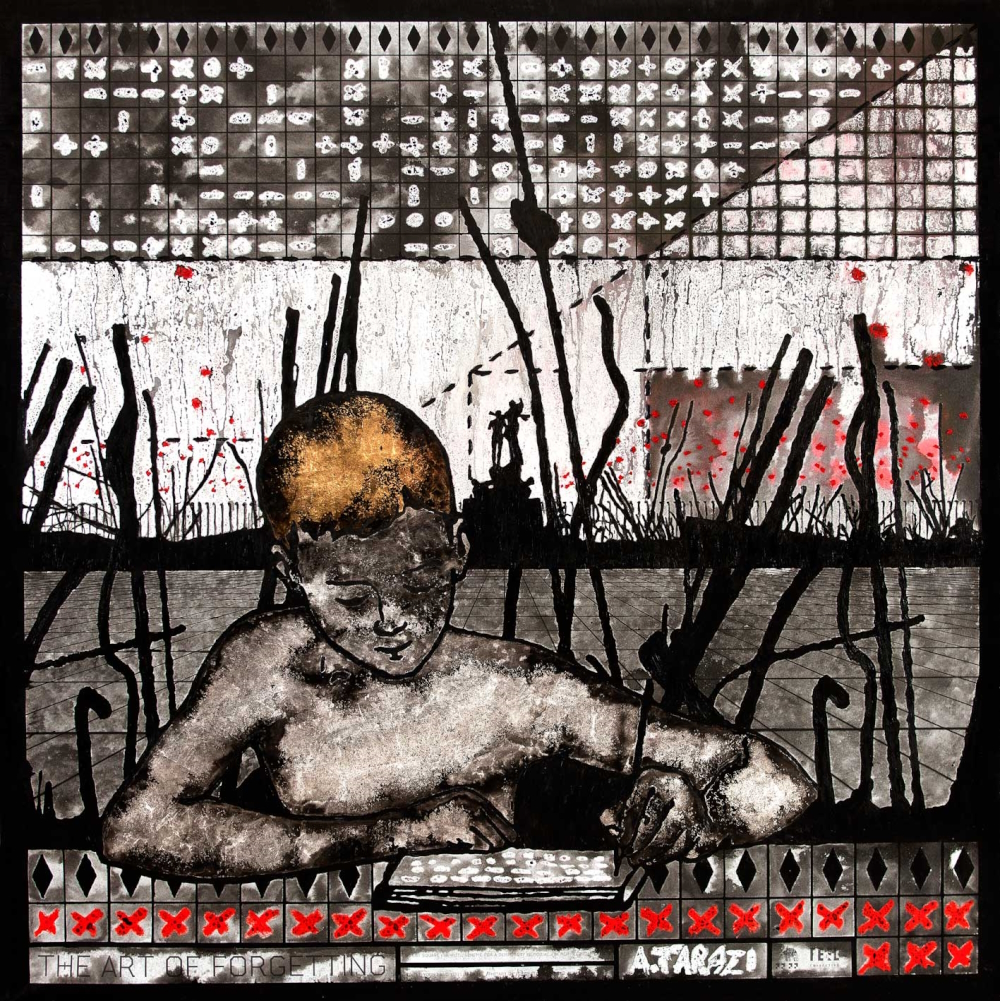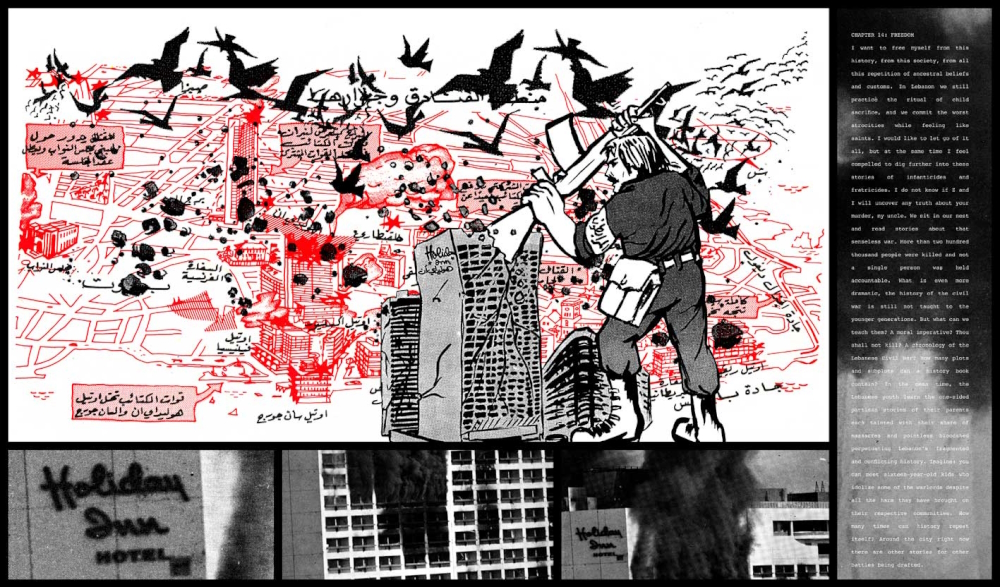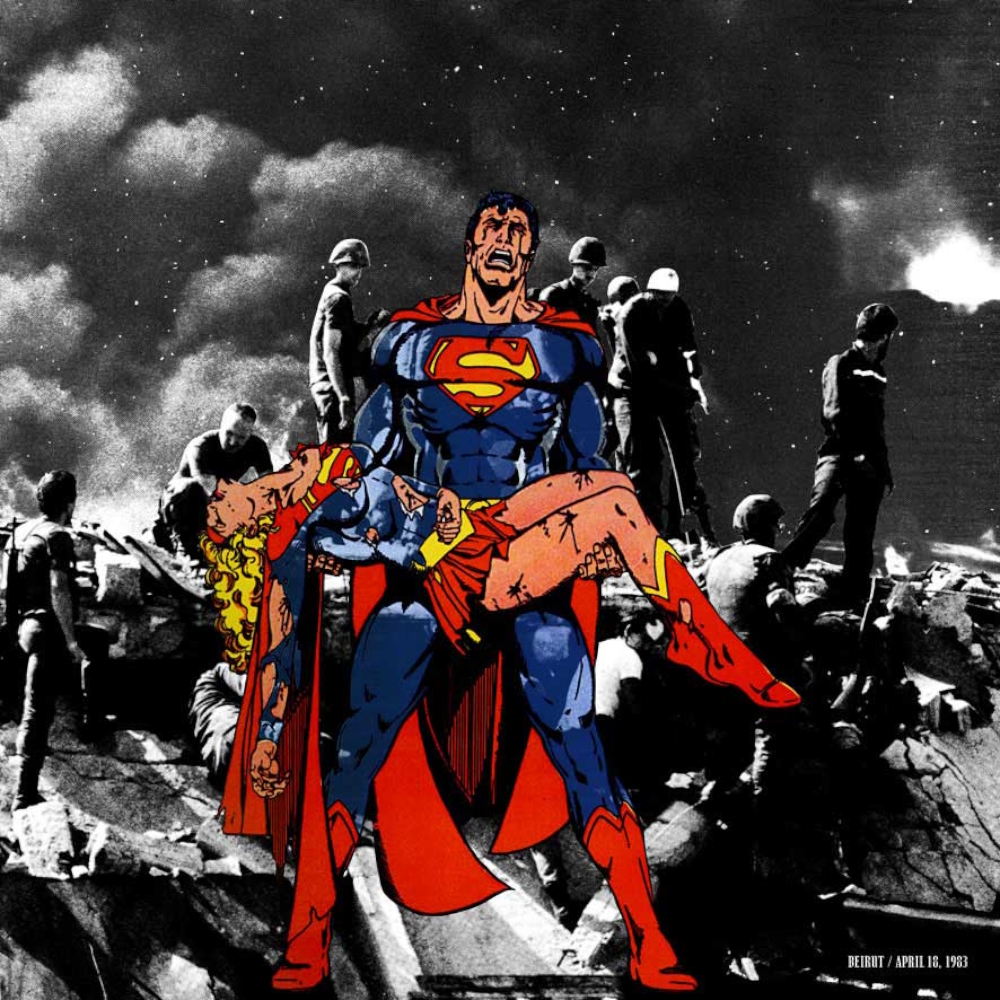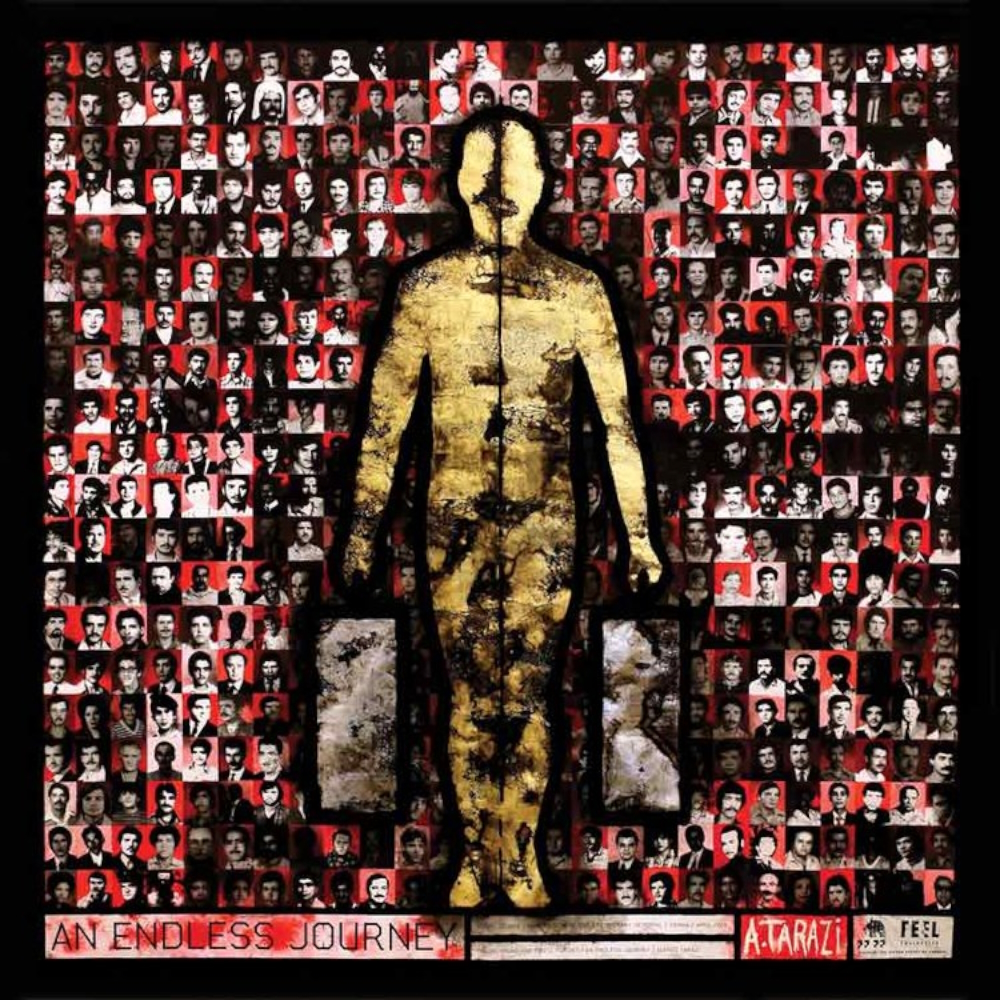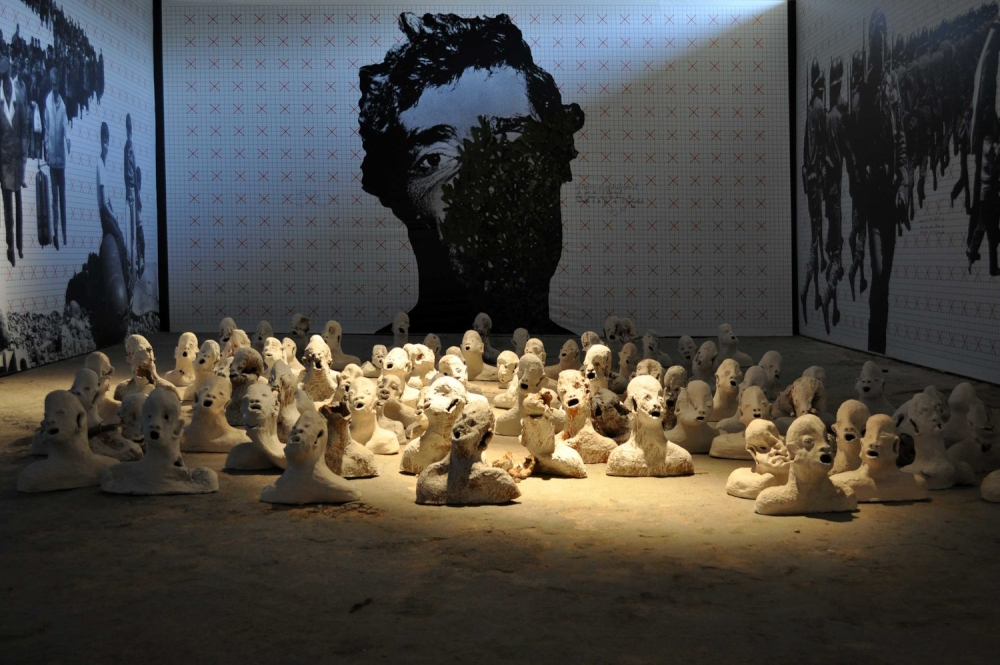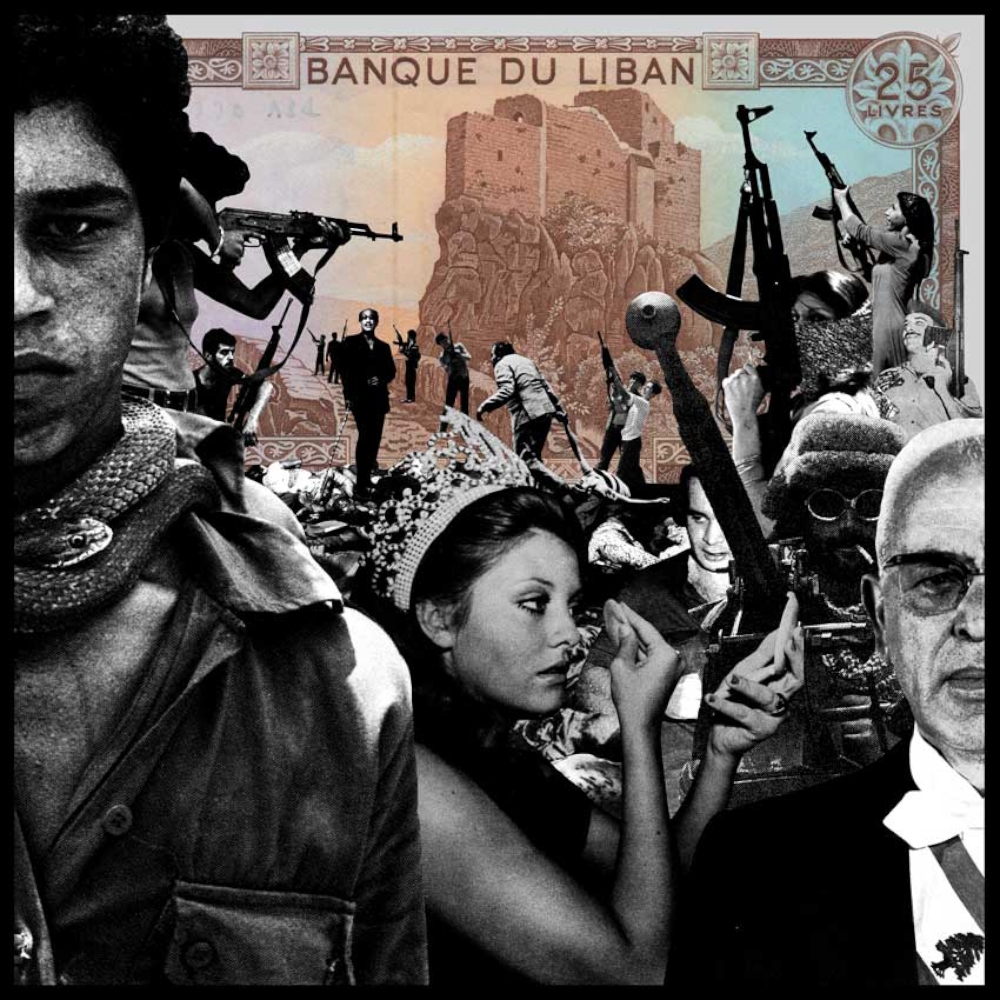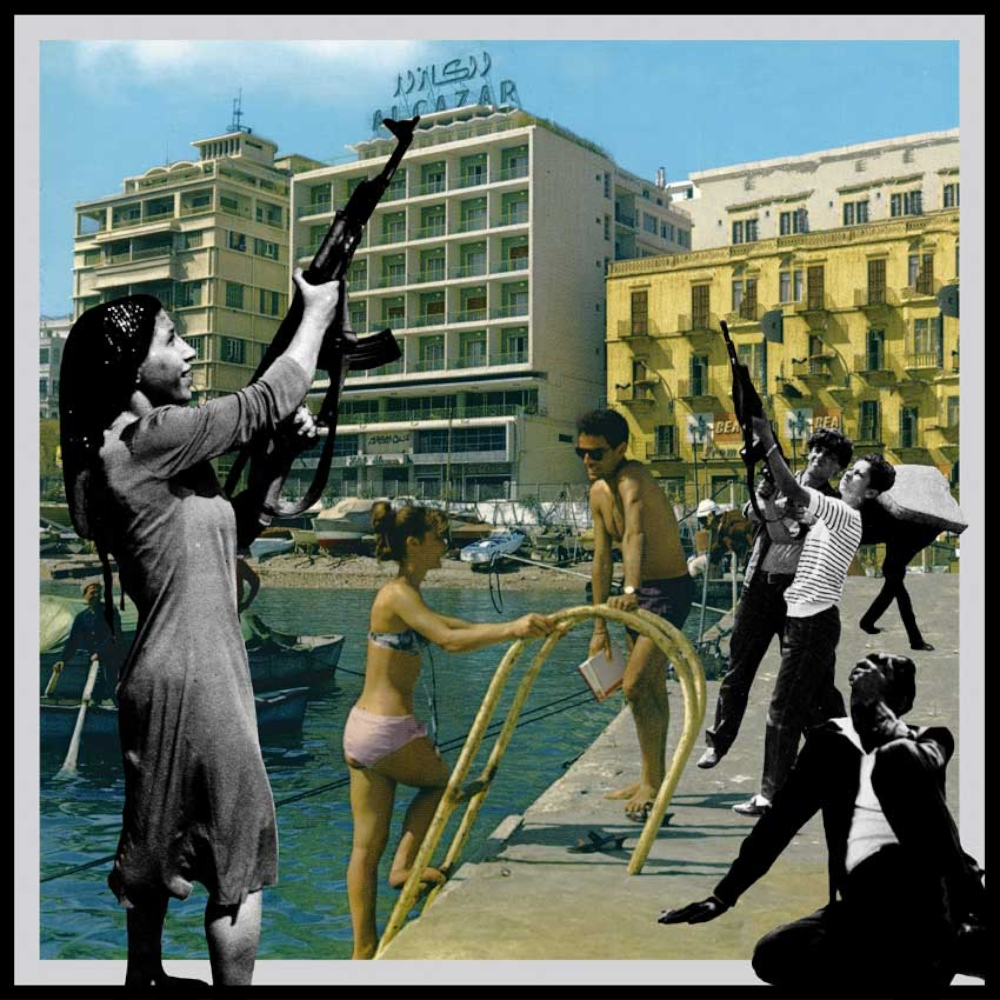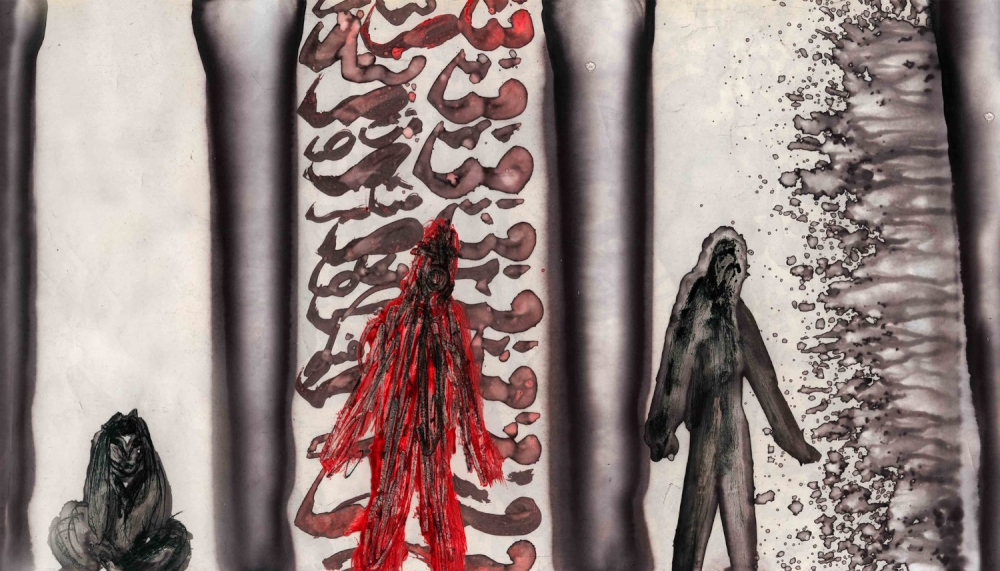Alfred Tarazi
multi-disciplinary artist
Lebanon
„Sharp like an inconvenient truth“! That quote from the renowned British newspaper The Guardian is an accurate description about this awarded creative’s output. It „analyzes, retells and processes the memory of the Lebanese Civil War (1975-1990) in a body of work ranging across painting, photography, drawing, digital collage, sculpture, and installation“, diagnoses Dalloul Art Foundation. His complex historian investigations have been acquired by prestigious public and private collections including The British Museum, London and are exhibited worldwide. The recipient of the very first Sovereign MENA art prize, the Middle East’s and Northern Africa‘s most prestigious art prize, said to Arab Ad, the first and oldest advertising and communications magazine catering to this region: „I don’t believe in a future without a past!“ Despite belonging to the post-war generation himself, notes Dalloul Art Foundation, he „scrutinizes the traumatic events in the aftermath of what has happened to the country at all levels, be it political, geographical, or social.“ And the maker‘s family, who are prolific artisans following a crafting tradition dating back to the founding of a gallery and manufactuing company of silks, carpets, antique metalcrafts and oriental furniture in 1862, was hit by almost every single of these disasters!
Alfred Tarazi
multi-disciplinary artist
Lebanon
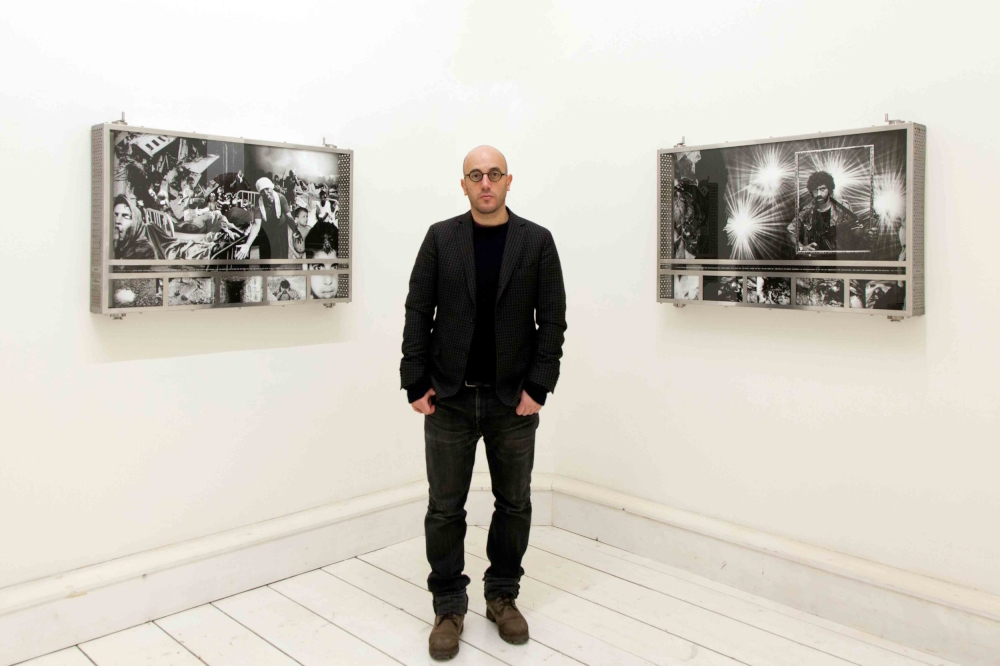
„My grandfather’s store was destroyed by the Civil War“, Afred Tarazi told Arab News. „My uncle’s store went through an explosion in Brummana (a city east of Lebanon’s capital), and then when he opened another store in Mar Mikhael, that too was devastated on August 4th 2020 when the Port of Beirut exploded.“
Considering such ongoing catastrophies regarding the individual existences plus the cultural background of his family it’s no wonder that Alfred Tarazi (* 1980 in Beirut) embarked on an artistic career path. It’s one that’s shaped by this urge to carry the weight of the history of Lebanon.
From 2000 to 2004 he studied Graphic Design at the American University of Beirut and graduated with a BA. In 2011 Alfred Tazari completed a residency at Krinzinger Projekte in Vienna/Austria, and has held two solo shows since then with Galerie Krinzinger. One of Europe’s leading contemporary art galleries introduces the man the following way: „Alfred Tarazi deploys his visual strategies in order to dig out fields of memory, emplaced haphazardly in a vast expanse of the present tense, often without direction or destination. A narrative emphasis occurs, at the root of which, the artist is unearthing critical and historical tools to read past events, provided by the past itself in the manner of a reluctant heritage. Tackling the Lebanese obsession with history, Tarazi playfully interrogates its questionable sources and selective archival practices, highlighting the role of the past as both origin and destination. With merciless realism intersecting both fiction and historiography, the artist articulates the spectacle of war as a syntax of the unimaginable, broken down piecemeal to a lived present. This archaeology of the now- time does not aim to restore, but rather, to represent a historical condition through fragments of anomalies and singularities. The field of representation, however, prevents distance and enclosure: it is a laboratory, a journal, a political inquiry, a memory site and a reality marker.“
In his interview with Arab Ad Mr. Tarazi emphasized: „We need to engage with the past in a much more active way. In Lebanon there is a tendency not to want to deal with the past under the pretext that, you know, ‘let’s not waste time on nostalgic feelings’. But for me it’s not about feelings. It’s about knowledge, and that knowledge is not always accessible. So maybe the initial impulse is nostalgic, but to deal with the past in a proactive way goes far beyond nostalgia.“
Alfred Tarazi is based in Beirut, Lebanon.
Interview November 2023
Importance of engaging with the past: art as warning lights of rememberance culture
INTUITION/IMAGINATION
?: How does intuition present itself to you – in form of a suspicious impression, a spontaneous visualisation or whatever - maybe in dreams?
Intuition presents itself in the urge of a moment that renders an action seemingly impossible within reach. Intuition broadens the field of possibilities.
?: Will any ideas be written down immediately and archived?
Depending on each person’s practice, a process is set in motion. In my case, art is an accumulation of small actions. Ideas pile up, they stratify, actions cumulate into something greater than ever expected.
?: How do you come up with good or extraordinary ideas?
You develop the patience to bear these ideas to fruition. All ideas are extraordinary.
?: Do you feel that new creative ideas come as a whole or do you get like a little seed of inspiration that evolves into something else and has to be realized by endless trials and errors in form of constant developments until the final result?
Creative ideas come from our ability to observe and perceive the magic that surrounds us. We build our lives around preconceived codes and boundaries. Life is bigger than we could ever perceive. Creativity comes from developing the courage to transcend all boundaries.
?: What if there is a deadline, but no intuition? Does the first fuel the latter maybe?
Deadines are the mother of all creation.
INSPIRATION
?: What inspires you and how do you stimulate this special form of imaginativeness?
I draw my inspiration from my childhood wonders. Life as a child is filled with wonder. As an adult we tend to rationalise and somehow banalize what is otherwise wonderful.
?: How do you filter between ideas that are worthwhile pursuing and bad ones that you just let go of?
As a horder I never let go of anything. The secret however is to keep that mess tidy as much as possible.
?: Does an idea need to appeal to you primarily or is its commercial potential an essential factor?
If it appeals to me it already has its first customer, which is more than enough.
?: Do you revisit old ideas or check what colleagues or competitors are up to at times?
In my field, colleagues and competitors are found in art history, which is a great lexicon of ideas to visit and revisit endlessly.
CREATIVITY
?: What time or environment best suits your creative work process — for example, a time and place of tranquility or of pressure? Which path do you take from theory or idea to creation?
There is time to develop thoughts alone, through writing, reading, composing…these happen on the inner world…then there are conversations to happen outside.
?: What’s better in the realization process — for example, speed and forcing creativity by grasping the magic of the moment or a slow, ripening process for implementation and elaboration?
Urgency sets a much needed pace in order to put up with the necessary sacrifices that creation requires.
?: How important are self-doubt and criticism by others during such a process?
Self-doubt and criticism are important but what is much more constructive is when other people inform your practice with new notions and ideas. Informing each other, sharing information and knowledge, that is the key to a successful process.
?: Is it better to be creative on your own, to trust only your own instincts, or to work in a team?
Both can be wonderful.
?: In case of a creative block or, worse, a real failure, how do you get out of such a hole?
As The Beatles sung: "With a little help from my friends"…
?: Should a creative person always stay true to him- or herself, including taking risks and going against the flow, or must the person, for reasons of commercial survival, make concessions to the demands of the market, the wishes of clients and the audience’s expectations?
A single shot at existence does not give you ample time to make concessions. Stay true to yourself. Always.
?: How are innovation and improvement possible if you’ve established a distinctive style? Is it good to be ahead of your time, even if you hazard not being understood?
For a creative person style can become a trap. The road to develop however a distinctive style is however tortuous and long. When and if I get there I will let you know.
?: When does the time come to end the creative process, to be content and set the final result free? Or is it always a work-in-progress, with an endless possibility of improvement?
It never ends. Life is constant flow, constant change. Our only finitude is our own mortality.
?: How does Artificial Intelligence change human creativity and do you/would/will you use it at all?
Along with the chisel and the hammer, AI is just another tool.
SUCCESS
?: “Success is the ability to go from one failure to another with no loss of enthusiasm.“ Do you agree with Winston Churchill’s quote?
Why would one quote a genocidal maniac? I’d rather quote David Bowie and say, we’re always crashing in the same car…
?: Should or can you resist the temptation to recycle a ‘formula’ you're successful with?
If the formula is good, why throw it away?
?: Is it desirable to create an ultimate or timeless work? Doesn’t “top of the ladder” bring up the question, “What’s next?” — that is, isn’t such a personal peak “the end”?
To produce something that can outlive its maker? Yes, that is something one can aspire to. But this doesn't depend on the maker but on those who will carry his/her work across the centuries.
MY FAVORITE WORK:
The installation Paper City: have I created order or a giant mess?
